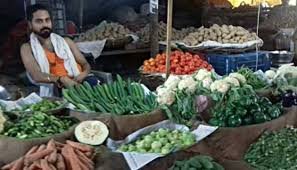
India’s retail inflation has hit a 10-month low, standing at 4.85% for the month of March 2024, compared to 5.09% in the previous month. This decline, below earlier predictions, marks a significant easing in inflationary pressures.
The latest data, within the Reserve Bank of India’s (RBI) tolerance band of 2-6%, reflects a gradual stabilization in price levels. Notably, food inflation, a significant component of the consumer price basket, rose by 8.52% in March, slightly lower than the 8.66% recorded in February. On the other hand, fuel prices witnessed a 3.2% year-on-year decrease, contrasting with a 0.77% fall in February.
While official government data on inflation rates is pending approval from the Election Commission of India (ECI), preliminary reports suggest a positive trend in core inflation, excluding volatile food and energy prices. Economists estimate core inflation at around 3.3%-3.4% in March, consistent with February’s figures.
The lower retail inflation is expected to have political implications, particularly during the ongoing national polls where Prime Minister Narendra Modi seeks reelection. The government’s measures to curb food prices, including export bans on commodities like wheat, rice, and onions, have contributed to this moderation in inflation.
Economists like Garima Kapoor note that March’s CPI inflation aligns with expectations, driven by softness in core inflation and the impact of reduced LPG cylinder prices. However, potential risks remain, especially with rising food prices amid changing weather conditions.
RBI Governor Shaktikanta Das highlighted the significance of inflation in the country’s economic landscape, referring to it as the “elephant in the room.” During a press briefing on the outcomes of the Monetary Policy Committee (MPC), Das emphasized the need for continued vigilance and policy measures to address inflationary challenges.
Sources By Agencies
 Digital Scoop India Official Platform of Digital Scoop India Featuring Latest & Best News #Articles #Bytes #Entertainment #DigitalScoopMagazine
Digital Scoop India Official Platform of Digital Scoop India Featuring Latest & Best News #Articles #Bytes #Entertainment #DigitalScoopMagazine



